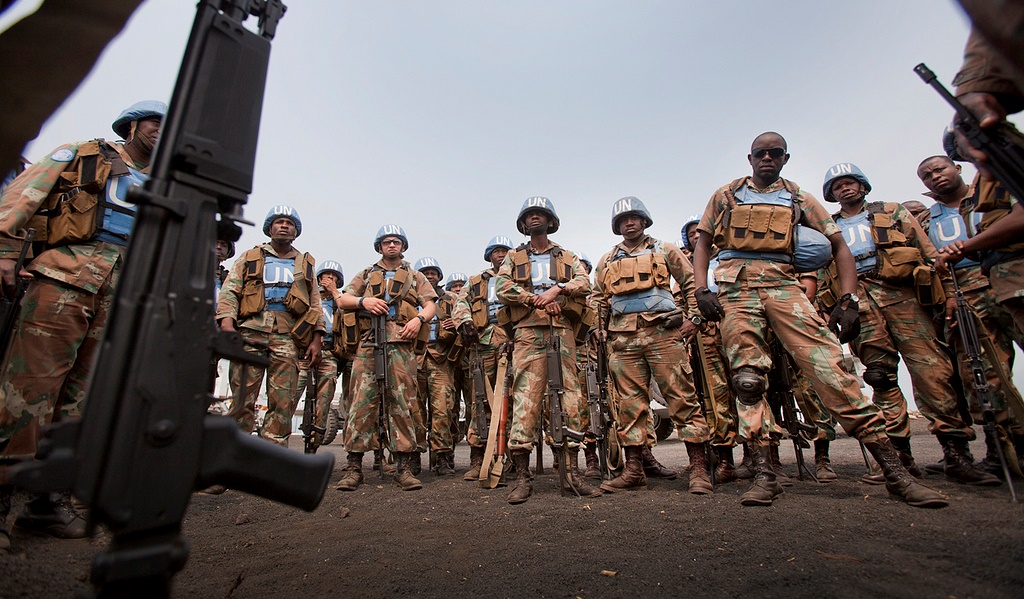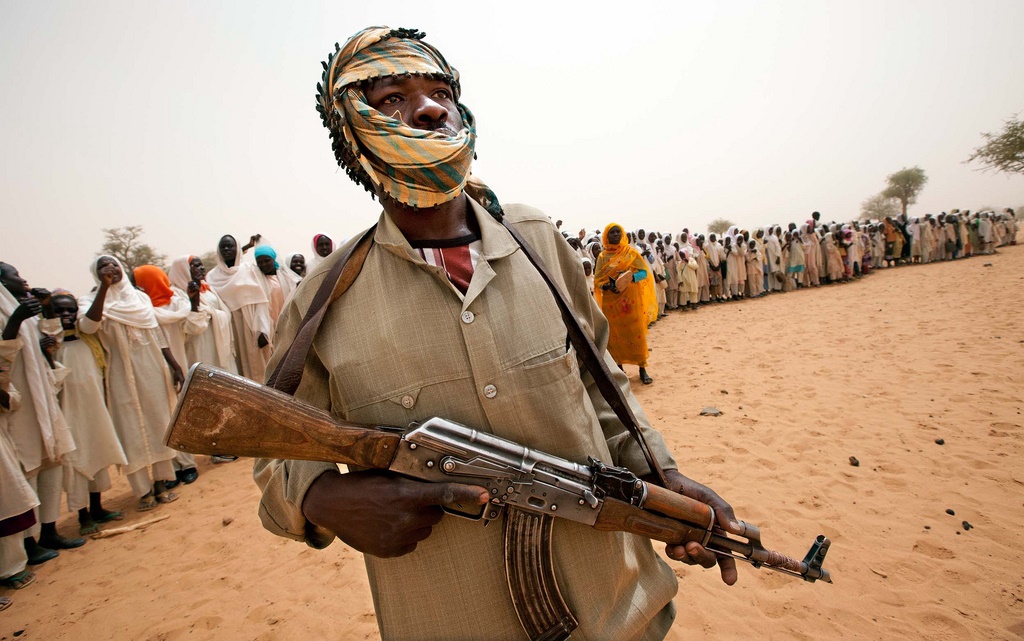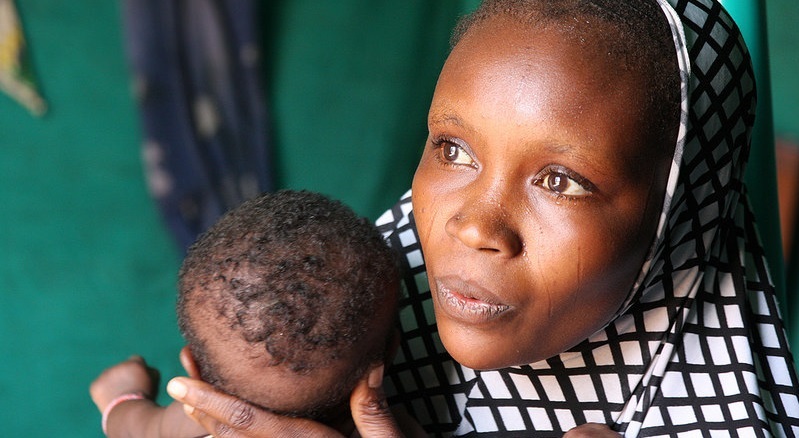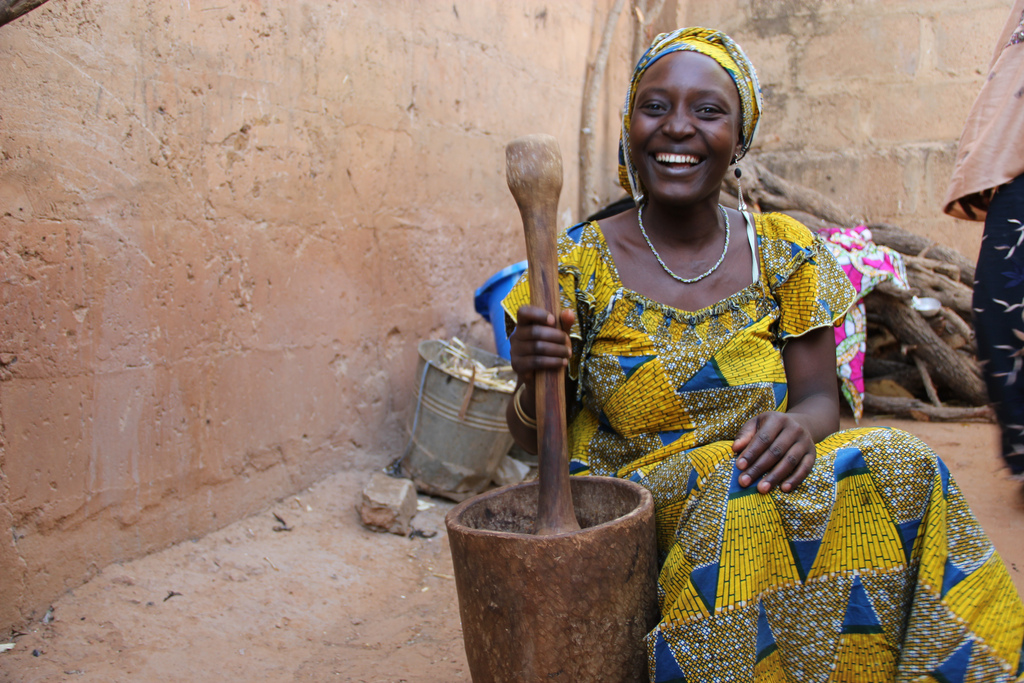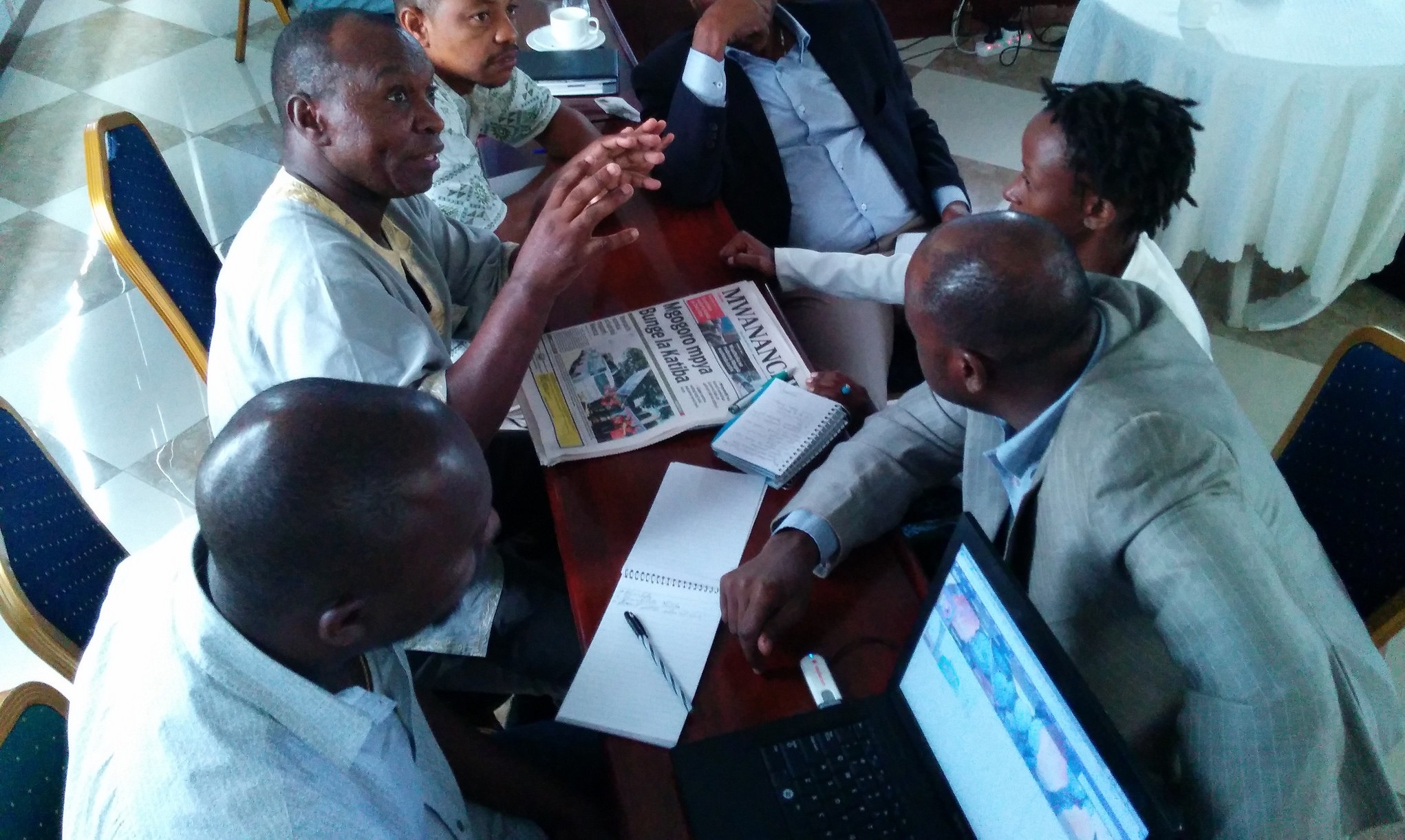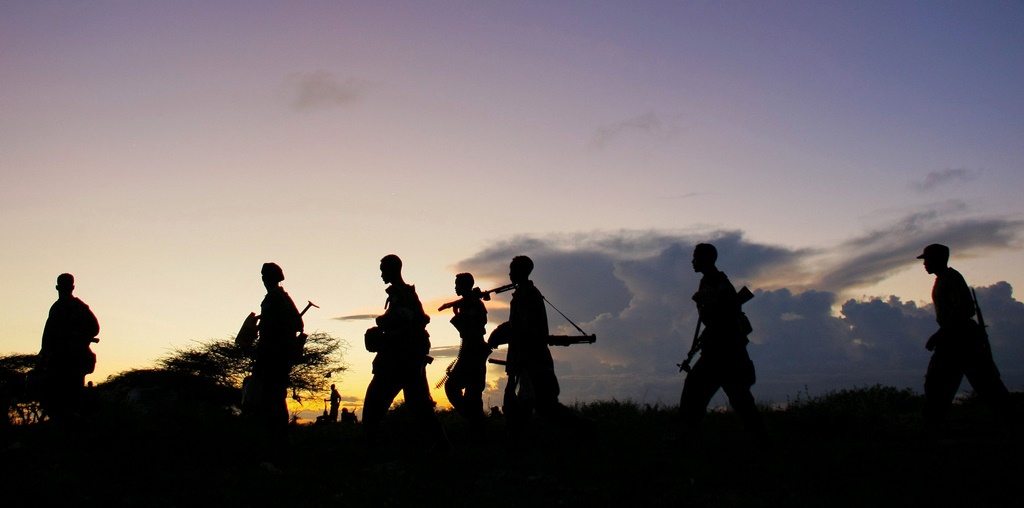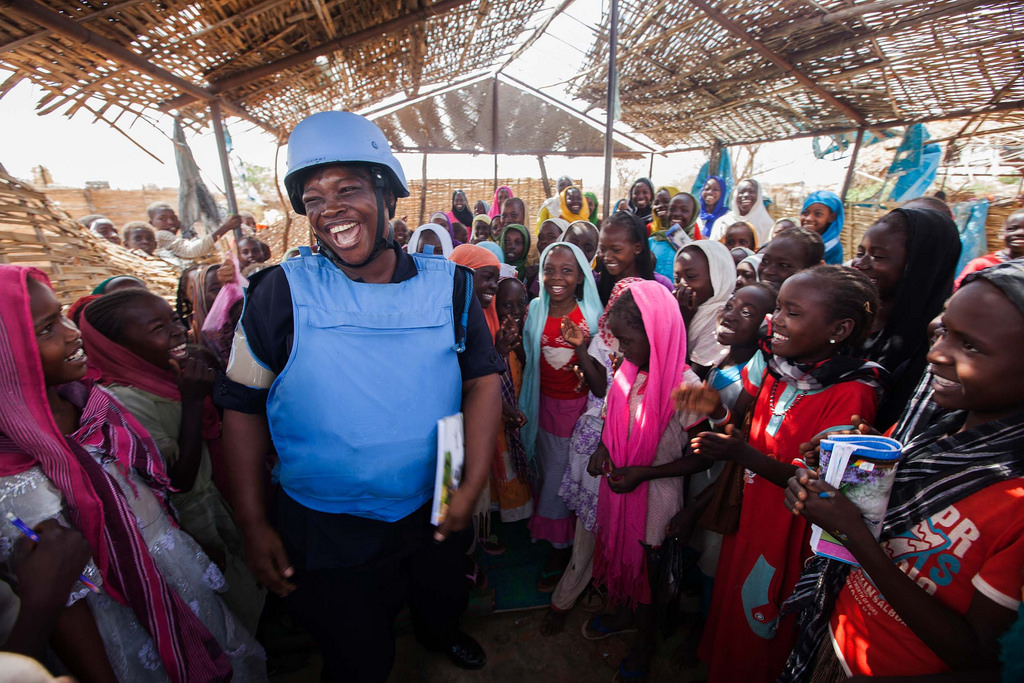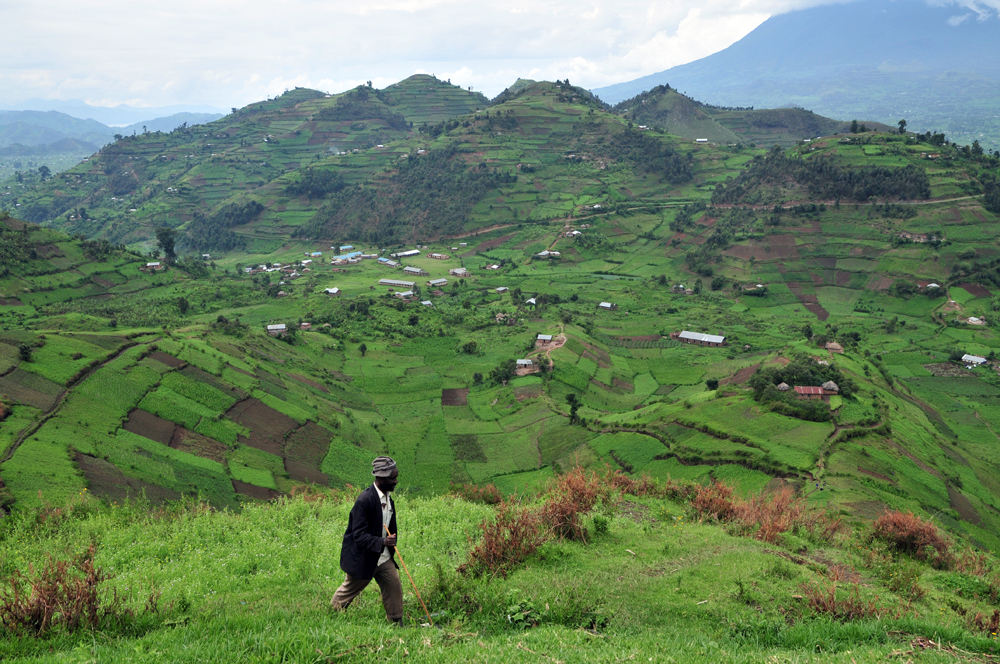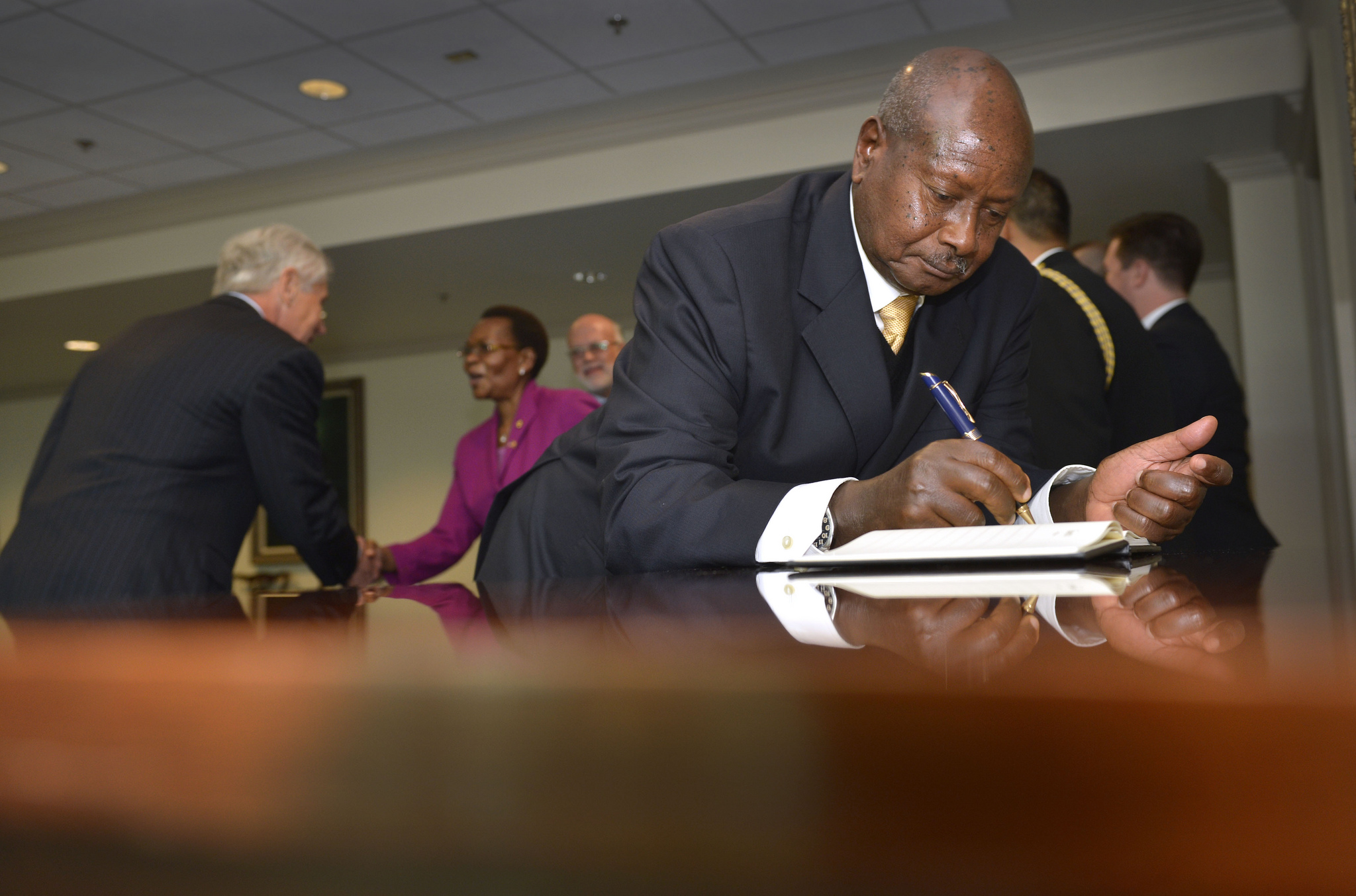"Against a backdrop of a dynamic and changing peace and security environment, the UN’s interaction with ROs is being redefined. Given the security realities of the continent, Africa is at the forefront of this historical dynamism, and African PSOs are instrumental in shaping the existing contours of the UN–RO relationship."
Essays
Essays present critical analysis and debate on a pressing issue in African peacebuilding.
Redefining Peacekeeping: The Force Intervention Brigade in the Democratic Republic of Congo
by Martha Mutisi"The coming together of the UN, AU, SADC, and ICGLR to conceptualize and operationalize the FIB demonstrates that hybridization in peacekeeping can work, especially if each intergovernmental organization is allowed to bring to the table its interoperable strengths. African countries provide the troops and equipment to form the brigade, while the UN provides the funding and logistical coordination. When peacekeeping operations are undertaken cooperatively, positive results are easier to achieve."
A Soft Power Approach to Eradicating Extremism in Africa
by Dan Kuwali“Leaders, clerics, and scholars at all levels should devise effective strategies to tackle the root causes of extremism and terrorism. The idea is to cultivate a culture of peace, tolerance, and acceptance of unity in diversity, based on diverse African values.”
Engaging Gender, Peace, and Security through the Lens of Terrorism: The Case of Boko Haram
by Cheryl Hendricks and Rachel Sittoni"Evolving security concerns have globally and continentally provided an entry point to discussing gender, peace, and security, mainly by focusing on SGBV in conflict situations. If we look at these issues through the lens of terrorism, what new insights emerge?"
Women’s Involvement in Peacebuilding and Conflict Resolution among the Igbo of Southeastern Nigeria
by Ngozi Ugo Emeka-Nwobia"As the Igbo case demonstrates, governments and international organizations—in Nigeria and elsewhere in Africa—have to ensure a narrative that extends beyond the usual stories of women as victims to how they use their agency and mobilize themselves to work for peace at home and within the community, and how those efforts may be formally recognized, documented, and scaled up on a continent striving for peace."
Press Freedoms and the Need to Repeal Draconian Media Legislation in Tanzania
by Dr. Nicodemus Minde"Press freedom is an important element of the democratization process. The freedom to report critically and question decisions promotes transparency and accountability and helps build robust, open, and democratic institutions .... Increased media freedoms and citizens’ access to information are essential to attaining these goals and consolidating democratic governance and political stability."
Journeys of Peace: Ex-combatants from Azania People’s Liberation Army in South Africa
by Godfrey Maringira"This essay summarizes the conclusions drawn from a study funded by the African Peacebuilding Network of the Social Science Research Council. It seeks to explore the ways in which ex-combatants make the transition from the use of violence to peace. These conclusions challenge the view that ex-combatants have continued to be violent in post-apartheid South Africa, and they establish that, even though ex-combatants have held onto their military skills, they are peaceful citizens."
Are Female Peacekeepers Making a Difference, and If Not, Why Not?
by Lindy Heinecken"What is clear is that female peacekeepers suffer under a hypermasculine military culture because they are 'othered' on many levels that affect their performance. The literature suggests that where women do seem to have made a difference, they were deployed in all-female units and served in predominantly constabulary roles. Some criticize these units because they are gender segregated, but, ironically, they are the ones most often praised for their success."
Statebuilding and Peacebuilding in Contexts of Identity-Related Conflicts: A Necessary Collaboration
by Dorcas Ettang"It is important to ask how peacebuilding can take place when the state is perceived as biased, partisan, unfair, and favoring some groups over others. How can peacebuilding reduce violence and at the same time address injustices and improve fragile relationships when the state is directly or indirectly responsible for increasing violence, perpetuating injustices among different identity groups, and contributing to the worsening of their relationships?"
Amending the Uganda Constitution: Isn’t It Time to Rethink the Process and the Key Issues?
by Patricia Nangiro"As Ugandans we need to push for a systematic and comprehensive overhaul of the entire constitution, which in its current form is a representation of elite interests. The new constitution must rethink governance as a never-ending process of exercising power to manage public affairs and resources in a manner that allows for equitable redistribution of benefits to all."



